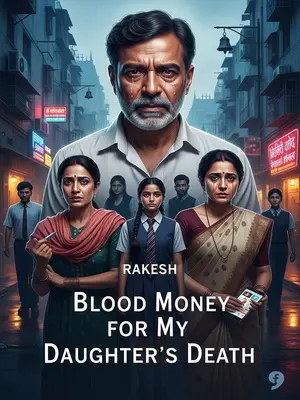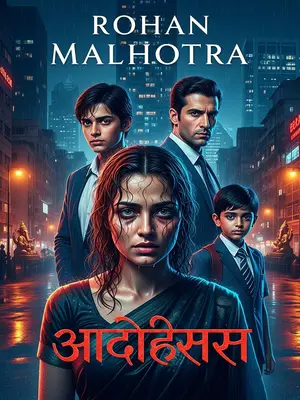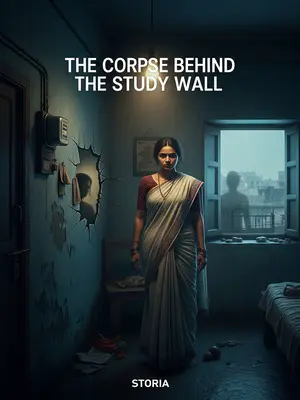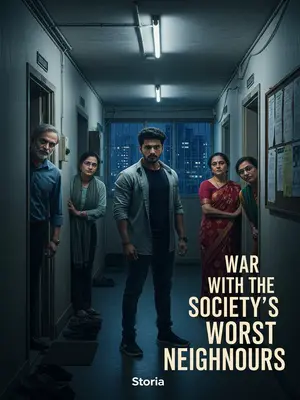Chapter 1: The Monsoon Returns Blood
A shocking and heinous murder once took place at the Mumbai Institute of Film and Performing Arts:
Among the victims were students, teachers, family members, and even a renowned performing artist.
The Mumbai Institute of Film and Performing Arts is a world-famous institution, nurturing countless filmmakers celebrated across India and the world. Since the 1970s, its brick-walled campus in Santacruz has been a landmark for every Mumbaikar—rickshaw drivers nod knowingly as they pass, chaiwallahs serve cutting chai to clusters of nervous auditionees, and the sound of tabla and tanpura floats on the thick evening air. Many a star has walked these corridors, their names whispered with pride in city living rooms.
On the east side of the teaching block, just north of Mumbai Film Studio, stands the staff quarters. Behind a faded blue gate, the eight-storey building rises above a courtyard where kids thwack tennis balls with broken bats and aunties gossip as they turn papads over on plastic sheets. The fragrance of frying onions sometimes drifts up from open kitchen windows, mingling with distant BEST bus horns and the sharp cawing of crows.
On 6th July 1994, a little after 4:00 p.m., something horrifying happened inside this staff housing block.
It was a classic Mumbai monsoon afternoon—sticky, heavy, with thick clouds pressing down. Even the ceiling fans seemed to move with a sigh, and restless crows fought for space on the balcony rails.
Jiya, daughter of actor Rajeev Malhotra, trudged home from school with her backpack sliding off one shoulder, shoes muddy from puddles. She was still in her St. Teresa’s uniform, socks grey at the toes. In the lift, she paused to adjust her blue ribbon, already dreaming of cold Rooh Afza from the fridge.
When she stepped onto the seventh floor, something immediately felt wrong.
The corridor was too quiet, as if everyone inside was holding their breath. The usual smell of Mrs. D’Souza’s agarbatti was missing. Even the old tube-light flickered in nervous pulses, casting jumpy shadows on the floor tiles.
The iron security gate, always locked and painted green (paint peeling at the corners), stood wide open. Her mother’s pride and joy—Meera always insisted, "Beta, Mumbai is safe, but humko dhyan rakhna chahiye." Jiya’s unease spiked.
She moved closer to her flat, a prickling tension running up her arms. Somewhere below, a pressure cooker whistled, and the smell of rain-soaked earth drifted in through the half-open window. But her own home was silent. Even the cheerful nameplate—"The Malhotras – 701"—looked strange in the dim corridor.
Not just the security gate, but the wooden door itself was ajar. Jiya had never seen both doors open, not even once. She hesitated, clutching her school ID as if it were a talisman. Her throat tightened, dry as the thick monsoon air.
Could Amma have forgotten? But Meera never, ever forgot about safety.
A faint metallic tang—strange, like blood—hung in the air. Jiya wrinkled her nose, searching for something familiar: ghee, sandalwood, anything but this cold iron scent that made her skin crawl.
Though only ten, Jiya had seen much of the world thanks to her celebrity parents. She remembered walking red carpets, her mother squeezing her hand, whispering, "Smile, beta." She forced herself to remember that strength now.
She pushed the door open, heart hammering. The living room was unchanged—brass Nataraja on the mantel, cassette stacks, a half-read magazine—except her mother was lying in the middle, perfectly still.
Meera lay on her side, back to the door. Her hair, usually tight in a bun after class, had come loose, strands stuck to her cheek. Her dupatta was bunched at her waist. Jiya’s first desperate thought: Is Mumma practising her dance?
She blinked, mind scrambling for any normal explanation. But as she edged closer, dread grew icy in her veins. The room was too still—no music, no humming, not even the click of ghungroos. Why would Amma be practising in her daily clothes? Why was the TV off? Even the balcony door was locked tight, as if the house itself was frightened.
A single bead of sweat slid down Jiya’s face. Her heart beat so loudly it hurt. Then she saw it: a pool of blood spreading under her mother, soaking her salwar, impossibly red, seeping into the doormat with Jiya’s name stitched on it. Her knees almost buckled.
Jiya’s mind screamed for this to be a dream—maybe she’d wake up, Amma would scold her for dirty socks, everything normal again. She hesitated, her hand trembling above her mother’s shoulder. Whispering under her breath, she mouthed the Gayatri Mantra, hoping for a miracle. "Mumma, please, aankhen kholo..."
Her voice cracked, trembling. She shook Meera harder, desperate, "Mumma, kya hua? Please uth jao!" But Meera’s body was icy cold in the sticky heat.
Jiya recoiled from the unnatural chill, a deep emptiness pressing down on her. Alone, utterly, for the first time in her life, she stared at the stillness. What should she do? Her mind raced: Papa! Only he could help.
Rajeev Malhotra, her father, was away in Hyderabad for a shoot. Jiya remembered his number stuck beside the landline in Meera’s neat handwriting. Hands shaking, she stumbled toward the phone.
Her foot struck something on the floor—a metallic clang echoing in the silence. She jumped. It was heavier than any toy or book: a bloodstained kitchen knife. She gasped, stepping back, nearly tripping on the carpet’s edge. The blade glinted with fresh crimson.
Blood stuck to her sandals. She tried to wipe it away on her skirt, frantic, as if she could erase the horror by sheer will.
Panic surged. She screamed, snatched the knife, and hurled it out the window—a child’s desperate act, hands slippery, vision blurred by tears.
Below, Old Mishra, the recycling collector, pedalled past on his ancient Atlas cycle, humming a Lata Mangeshkar tune. Suddenly, a glint of steel whistled past his nose and thudded into the ground. He nearly toppled from his cycle, clutching his chest. He wiped sweat from his brow with his gamcha, muttering, "Arrey bhagwan! Upar se kya gira rahe ho? Yeh koi kachra hai kya?"
He shuffled over, squinting at the knife. As he saw the blood, his heart raced. Crossing himself, he murmured a prayer, "Bhagwan bachaye, yeh toh khoon ka chaku hai!" Then he looked around, glancing up at the windows, calling, "Arrey, upar se kya gira rahe ho?"
The courtyard erupted. Housewives leaned out of windows, children abandoned their cricket match, the watchman sprinted over, dhoti flapping. "Hai Ram, kya hua? Chaku? Khoon? Police ko bulao jaldi!"
Jiya’s small voice floated down, almost lost in the commotion: "Uncle, I’m sorry—my mum was stabbed with a knife..."
A stunned silence swept the courtyard as her words sank in, the horror settling over everyone present.





